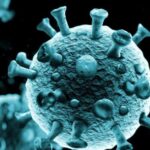
I have written about the promise of mRNA technology on this site on numerous occasions. The list of potential vaccine candidate diseases is long, representing a likely medical revolution in disease management and cures. That’s why the recent cancellation of US$500 million in funding for mRNA vaccine research is possibly the dumbest decision Robert F. Kennedy Junior could make as the head of America’s Health and Human Services Department.
The effectiveness of mRNA vaccines in fighting COVID-19 cannot be underestimated. Without this novel vaccine technology, millions more would have died from the global pandemic up until now. It should be understood that the fight against COVID-19 has not ended. The virus has become endemic, requiring continued vigilance by health departments and the global general population. In recent weeks in the U.S., COVID-19 levels have been rising based on wastewater sampling.
Notwithstanding, Kennedy’s policy changes will likely disrupt future vaccine development to deal with new variants of the virus, let alone other viruses and infectious agents causing disease, where an mRNA solution could produce effective prevention and treatment.
mRNA vaccines for cancer treatments have been on the front burner of companies like Moderna, Pfizer and Merck, as well as universities and hospital research departments. What makes mRNA vaccine technology conducive to developing specific targeted and non-specific cancer treatments?
A July 2025 published article in the journal Nature Biomedical Engineering describes how an mRNA vaccine developed at the University of Florida (UF), when combined with other drugs, is demonstrating the potential to become a universal cancer treatment.
Duane Mitchell, a co-author of the paper, describes the use of mRNA technology in cancer treatment, stating, “What we found is by using a vaccine designed not to target cancer specifically but rather to stimulate a strong immunologic response, we could elicit a very strong anticancer reaction. And so this has significant potential to be broadly used across cancer patients – even possibly leading us to an off-the-shelf cancer vaccine.”
Kennedy’s cancellation of mRNA funding, he claims, will not affect the use of the technology in treating cancer. When asked about his most recent mRNA ruling, Kennedy stated, “We’re still doing the research on oncology, on cancers, where it may be very, very effective.” UF researchers point out that funding cuts to overall mRNA research will impact research infrastructure, supply chains, and recruitment of those entering the field of infectious diseases, as well as cancer, noting that mRNA funding reductions cannot be disconnected from overall U.S. research into novel treatments of infectious diseases.
An August 8, 2025, article published on the Onco Daily site quotes Kennedy’s objections to mRNA vaccines, which he claims have failed to “protect effectively against upper respiratory infections like COVID and flu.” Without any evidence, Kennedy states that mRNA vaccines “encourage new mutations and actually prolong pandemics.”
Virologists who lack Kennedy’s so-called “expertise” argue the opposite, noting that viruses naturally mutate whether vaccination programs are in place or not. They point to the rapid development and deployment of mRNA vaccines as “instrumental in slowing the COID-19 pandemic and saving millions of lives.”
Researchers working on mRNA technology state the Kennedy decision is creating a “self-inflicted vulnerability” and is “misguided” based on a fundamental misinterpretation of data coming from COVID-19 response studies.
For future responses to pandemics and cancer vaccine development, this funding decision will leave the U.S. less prepared for future pandemics. It will likely lead to ongoing research being conducted elsewhere, where mRNA development continues to be supported. Nature’s August 15, 2025, published an editorial entitled, “Cancelling mRNA studies is the highest irresponsibility.” It states that mRNA technology “should be feted to the skies,” and continues stating, “shock and disbelief do not even begin to describe the reaction from mRNA and public-health researchers.”
The World Health Organization (WHO), which the Trump administration no longer acknowledges, describes mRNA vaccine technology as a means by which low and middle-income countries can be vaccine self-sufficient in health emergencies. In one project involving fifteen African countries, rapid development and deployment of the technology will establish and scale the manufacturing of mRNA vaccines to meet volume, quality, safety and efficacy standards. The Nature editorial states that until now, it was impossible to imagine mRNA research without U.S. involvement. Work on mRNA technology began in American laboratories back in the 1980s, and American researchers won Nobel prizes for unlocking its secrets.
What does the U.S. defunding mean for Canadian mRNA research? Recently, Canada’s federal government invested in vaccine and biomanufacturing facilities across the country, with tens of millions being given to research teams focused on developing, testing and manufacturing mRNA and other advanced vaccines. It appears Canada’s governments at the federal and provincial levels are putting more money into mRNA research, while displaced American researchers come to Canada to increase the talent pool. Expect America’s defunding to accelerate Canadian investment in mRNA vaccine research and to increase Canada’s collaboration with international partners, but not the U.S.
The Nature editorial doesn’t pull punches. It concludes that the rest of the world is choosing a different course than Kennedy’s abandoning of mRNA research with cancer, for the moment, the exception, concluding “the pandemic might seem like a distant memory to some, but we must never, ever, forget that millions are alive today, or in better health, because of this life-saving technology.”








